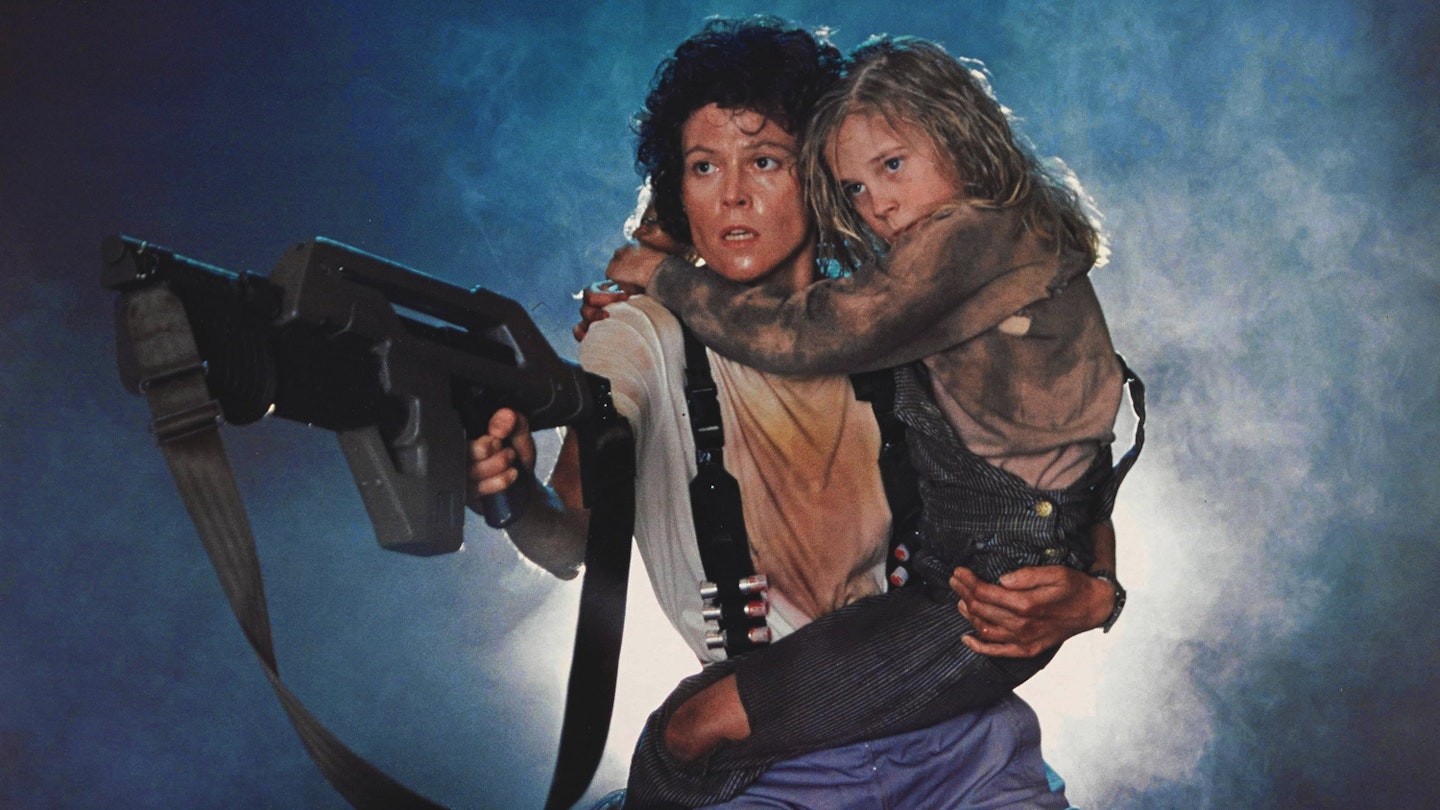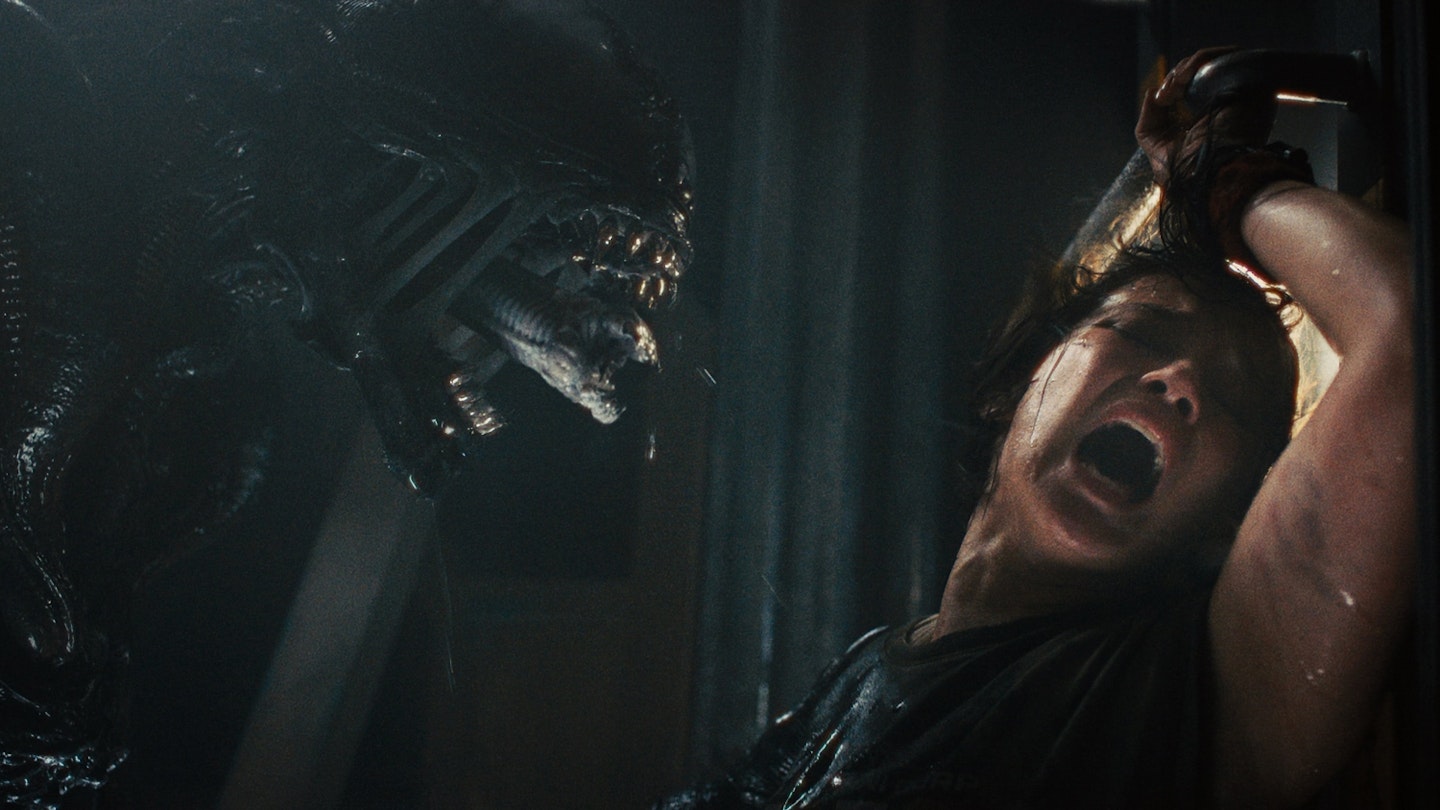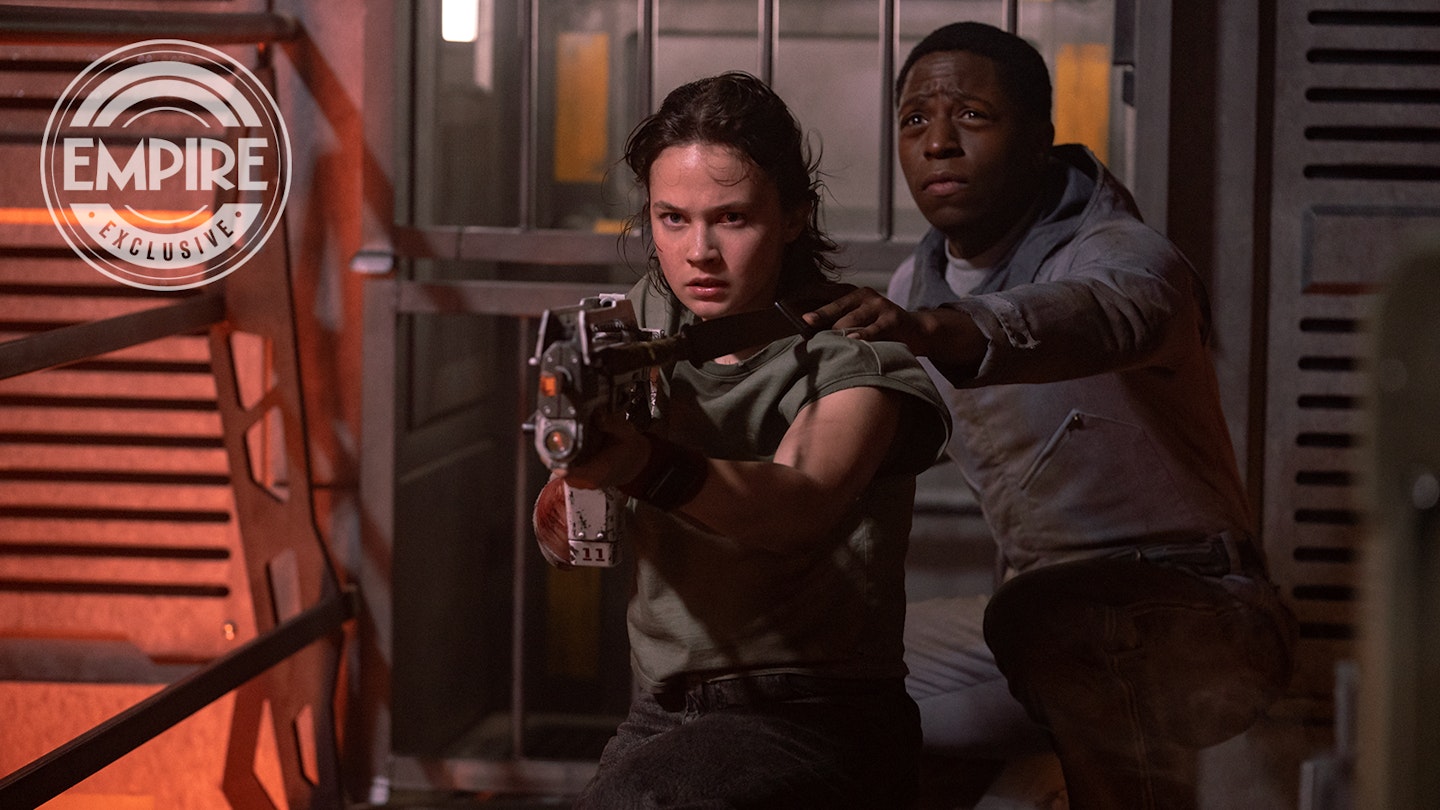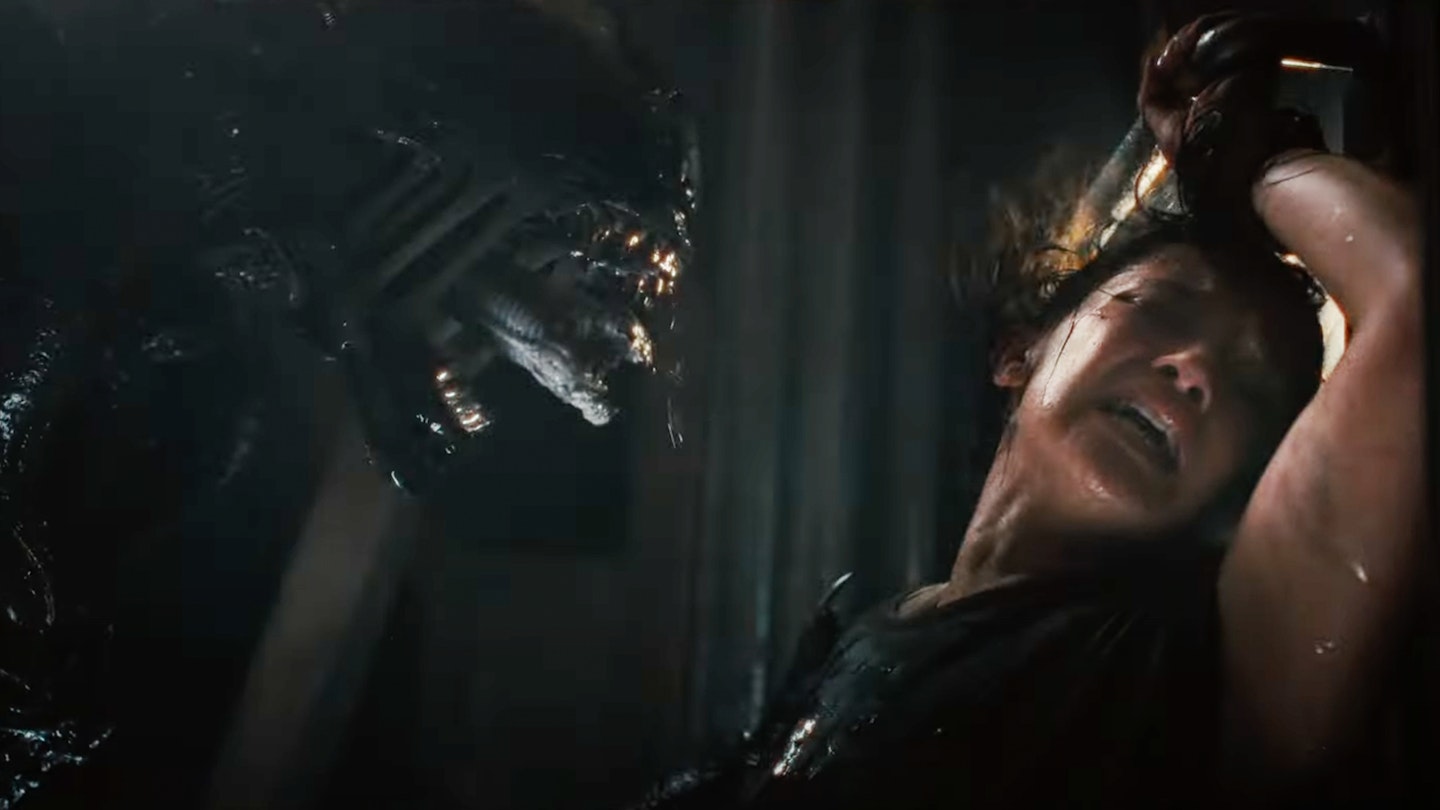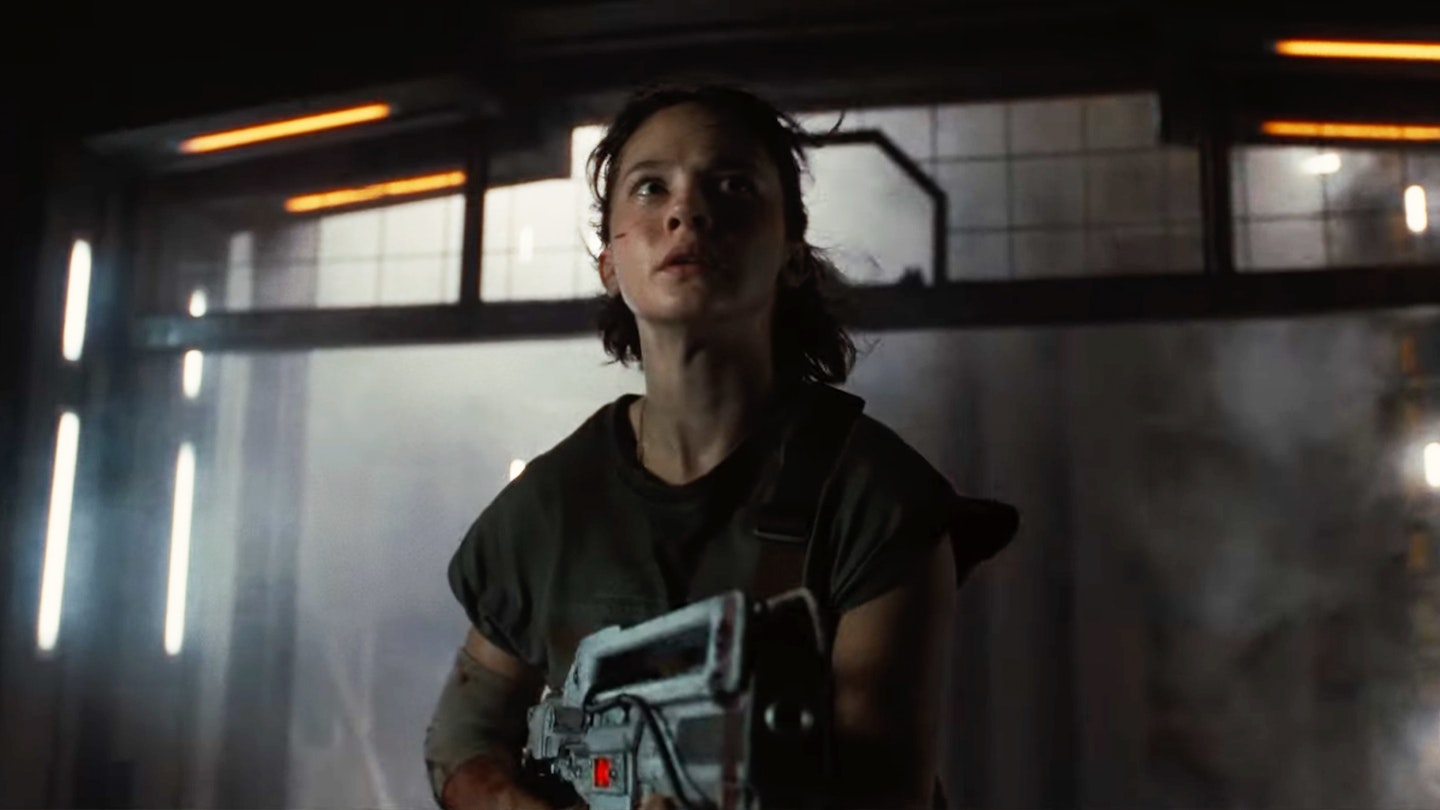Aliens is the perfect sequel. The Empire Strikes Back, while certainly a better film than Star Wars, was more a polished segment in a longer story than a stand-alone adventure. But Aliens is the model for every potential sequel-maker: it connects irrefutably with the events of the original (even to the point of starting exactly where the drama left off, albeit 57 years later) and expands on all the ideas and themes while simultaneously differentiating itself. The same, yet entirely different. Perfect.
It also stands as testament to the unwavering vision and icy nerve of James Cameron (here directing only his third movie). Utilising the bombed out skeleton of Acton Power Station to create the vast industrio-grim colony/hive setting for events, he was faced with a veteran British crew who had worked on Alien and worshipped the ground Ridley Scott walked on. What could this Canadian punk kid know? Well, for starters that in this case more is, indeed, more. Not just a single, ruthless, unbeatable killing machine but an army of them. On home turf.
Writing as well as directing, Cameron posited a simple premise. The planet LV-426, where the first Alien was unwittingly discovered has been colonised by the Nostromo's mother company, Weyland-Yutani. And now communication has been lost. Time to send in a crack team of space marines and enlist the help of a traumatised Ripley. There you have it: Marines (plus the ever resourceful Ripley) versus Aliens (plus mum). This was genre splicing a la carte: the war movie fused inextricably with science fiction.
A factor highlighted by Cameron's hardware fetish — he drools lavishly over the future technology of weaponry.
He was also fascinated with Ripley and understood straight away this was her story. It is her resourcefulness and ability to rationalise the crisis that enables survival (Newt is a perfect junior model — someone who has survived by her wits). Courage, for Ripley, is an acceptance of fear and dealing with it with intelligence. Weaver deservedly got an Oscar nomination.
What also counts here is execution. Cameron accepted Scott's (and, of course, H. R. Giger's) design ethic — gloop, scaly bits, loadsa teeth and long, dark, dingy, dripping corridors — but reinterpreted them as a battleground rather than a haunted house. The point he grasped straight away is that you can't win against this foe or the stigma, the sheer terror that this endomorph engenders would be lost. You can only escape. He replaced Scott's "behind-you" tension with a muscular fury, unrelenting, sweaty-palmed, pant-filling movie intensity. Nothing before or since has locked the viewer in with such an all-consuming sense of peril (audiences and critics actually complained of physical discomfort even illness upon exiting the auditorium).
Thematically, Aliens also expounds the set-up further. Central is a continuation of Scott and Dan O'Bannon's (the original screenwriter) bogey man hypothesis — what if a lifeform was so attuned to survival it became the perfect killing machine and as such garnered a degree of Darwinisitic respect, even form its prey? Ash in Alien, lunatic android though he was, praised the monster for its "purity", even Ripley, confronted by the duplicity of company man Burke (Paul Reiser), has to admit that "You don't see them fucking each other over for a goddamn percentage!" Then it really gets going: Alien as giant phallus (and now there's a whole army of them) versus feminist heroine. The feminist subtext is hardly "sub" at all, Ripley is one of the strongest female characters in movie history. Closer to Cameron's heart, and a theme that recurs throughout his work, is the preservation of the nuclear family. With Newt rescued and Ripley taking on the role of surrogate mother we only need add Hick's gentlemanly (but by no means dominant) father to complete our model of perfect family unit (the other survivor, the android Bishop, well, he's either a kindly uncle or the pet dog or something). This whole notion is finally boiled down to a remarkable battle of maternal instincts — Ripley defending her child Newt; the queen Alien defending (or, at least, avenging) her children — summed up memorably in Ripley's battle call: "Get away from her, you bitch!" The biology of the species has been developed to the point where empathy if not sympathy is acceptable. And if you want to keep this up there is the 'Nam in space metaphor: unseen "gooks" mounting stealth attacks and the retreating Yanks totally undone by a tactic and mindset they cannot comprehend (a metaphor for US foreign policy?).
Yet none of such academic noodling is ever at the expense of the thrills. Cameron understood fundamentally the basis here was a gut reaction. Aliens construction of action scenes, its build-up of tension and its final execution of combat is a marvel to behold (the film literally provokes a physical reaction). These are characters we care about, headed up by a resourceful heroine who is pitted against a formidable enemy in a thoroughly believable environment. Pure movie.

